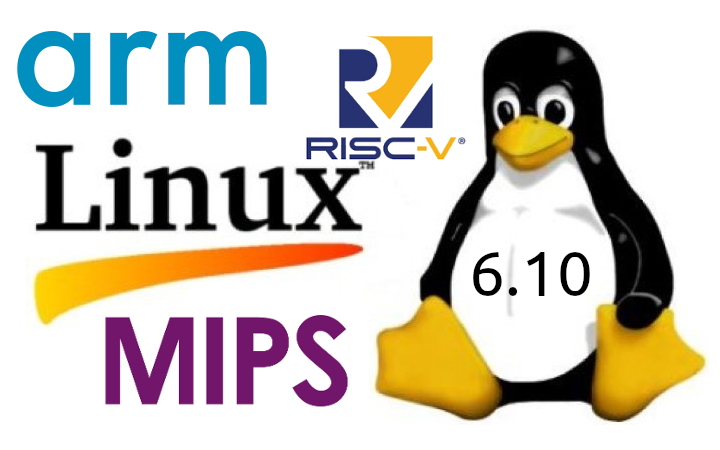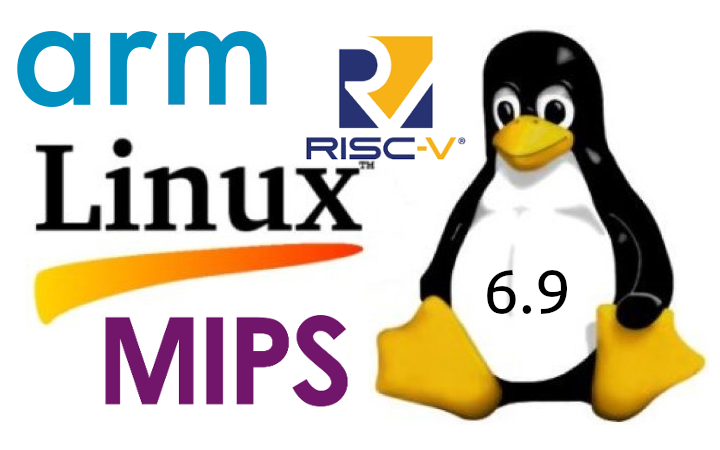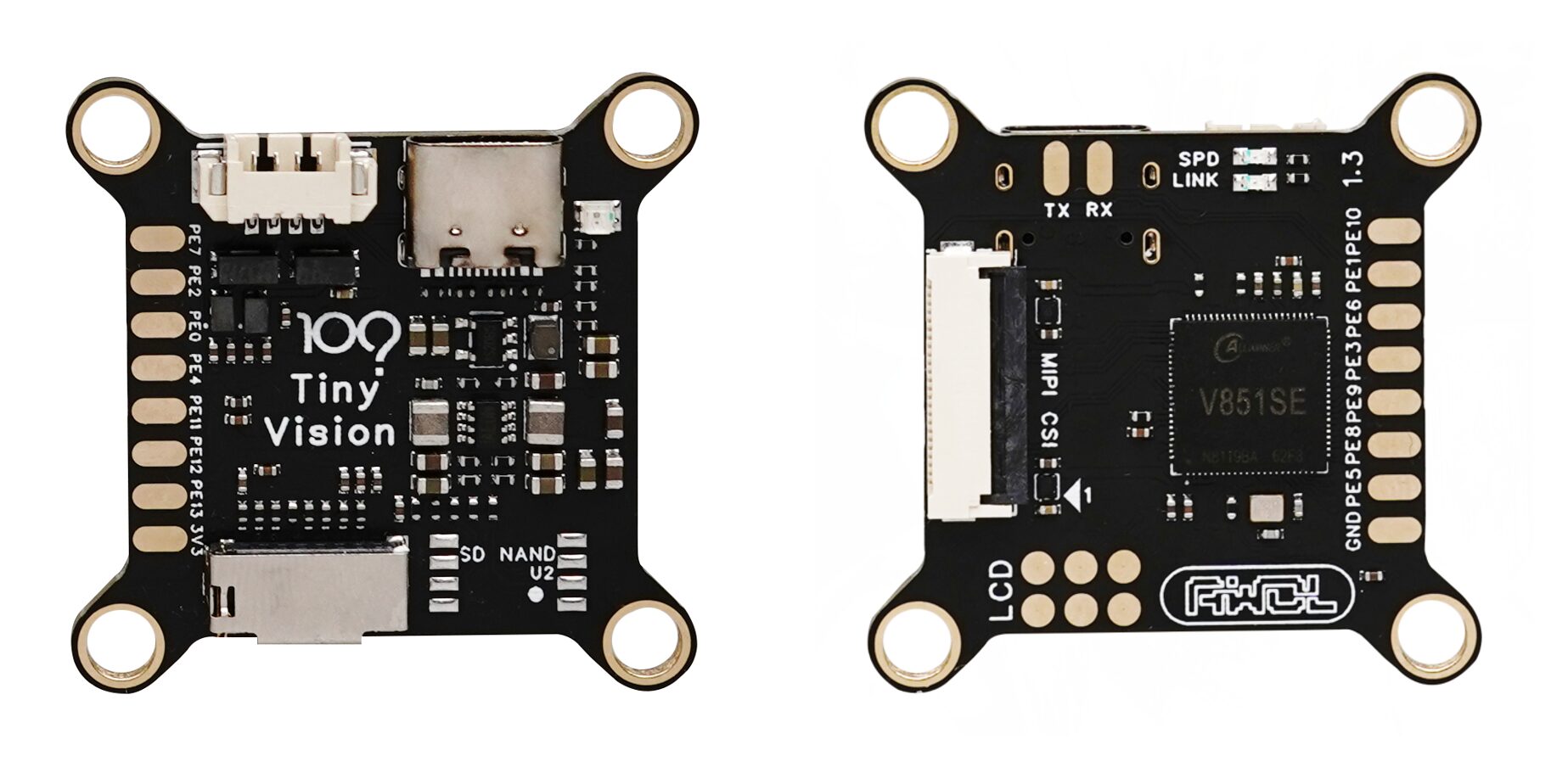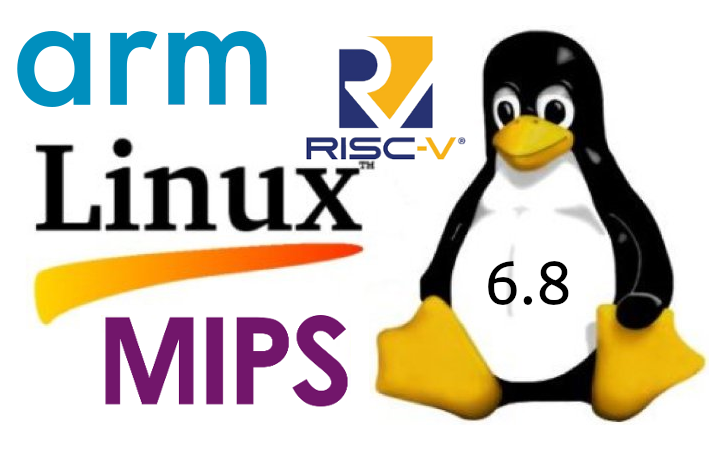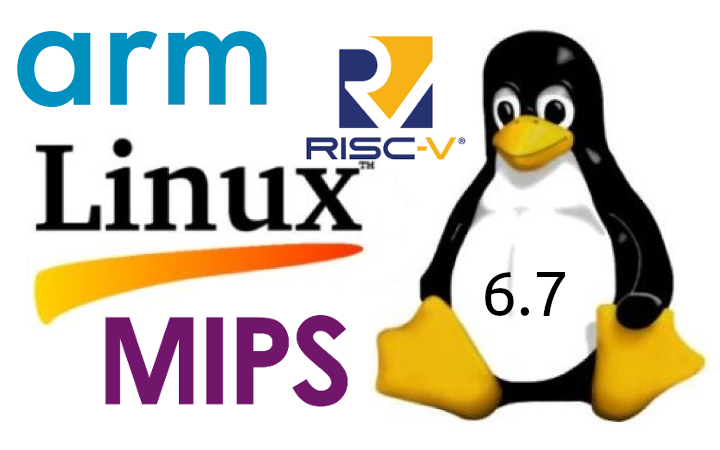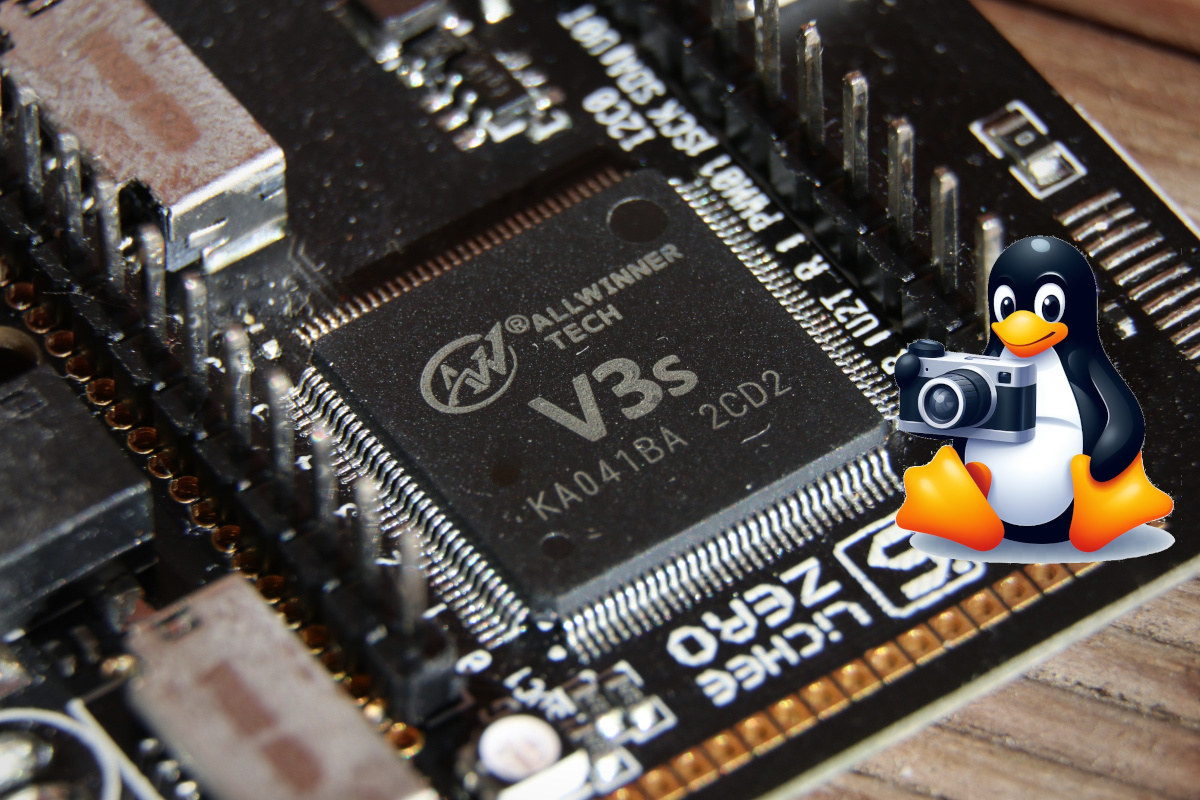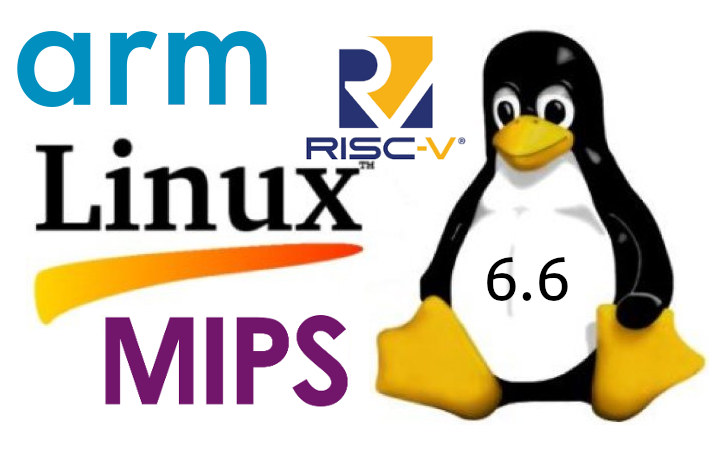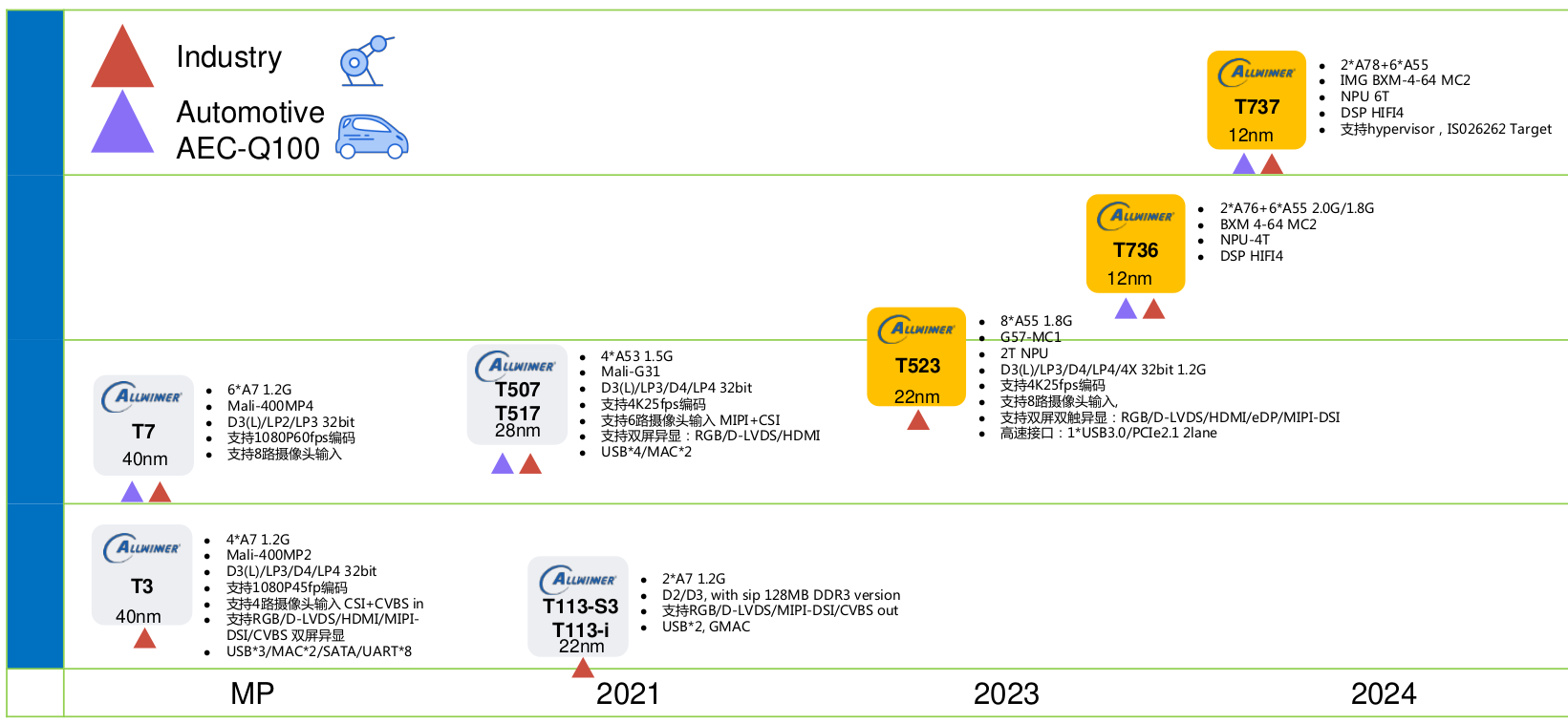Linux Torvalds has announced the release of Linux 6.10 on LKML: So the final week was perhaps not quote as quiet as the preceding ones, which I don’t love – but it also wasn’t noisy enough to warrant an extra rc. And much of the noise this last week was bcachefs again (with netfs a close second), so it was all pretty compartmentalized. In fact, about a third of the patch for the last week was filesystem-related (there were also some btrfs latency fixes and other noise), which is unusual, but none of it looks particularly scary. Another third was drivers, and the rest is “random”. Anyway, this obviously means that the merge window for 6.11 opens up tomorrow. Let’s see how that goes, with much of Europe probably making ready for summer vacation. And the shortlog below is – as always – just the last week, not some kind […]
Linux 6.9 release – Main changes, Arm, RISC-V, and MIPS architectures
Linus Torvalds has just announced the release of Linux 6.9 on LKML: So Thorsten is still reporting a few regression fixes that haven’t made it to me yet, but none of them look big or worrisome enough to delay the release for another week. We’ll have to backport them when they get resolved and hit upstream. So 6.9 is now out, and last week has looked quite stable (and the whole release has felt pretty normal). Below is the shortlog for the last week, with the changes mostly being dominated by some driver updates (gpu and networking being the big ones, but “big” is still pretty small, and there’s various other driver noise in there too). Outside of drivers, it’s some filesystem fixes (bcachefs still stands out, but ksmbd shows up too), some late selftest fixes, and some core networking fixes. And I now have a more powerful arm64 machine […]
TinyVision is a compact Allwinner V851S/V851S3-powered Linux board for vision-based applications
Unrelated to tinyVision.ai, the TinyVision development board is a computer vision board from Chinese developer YuzukiTsuru powered by either the Allwinner V851S or the V851S3 and is billed as an “ultimate all-in-one solution for Linux motherboards, IPCs, servers, routers, and more.” It packs features such as a Cortex-A7 core running at 1200MHz, a 2-channel MIPI CSI input, and an independent image signal processor (ISP) capable of a maximum resolution of 2560 x 1440 in a compact form factor. TinyVision specifications: Processor – Allwinner V851SE / V851s3 with Cortex-A7 core @ 1200MHz and RISC-V E907GC core @ 600MHz NPU: 0.5TOPS (tera operations per second) @ INT8 precision Memory – 64MB DDR2 (V851se), 128MB DDR3L (V851s3) Storage – MicroSD card slot (supports UHS-SDR104), onboard SD NAND via SPI Display – 2-lane MIPI DSI (1280 x 720 @ 60fps), RGB LCD (320 x 240 @ 60fps) Video Input ISP with a maximum resolution […]
Linux 6.8 release – Notable changes, Arm, RISC-V, and MIPS architectures
Linus Torvalds has just announced the release of Linux 6.8 on the Linux kernel mailing list: So it took a bit longer for the commit counts to come down this release than I tend to prefer, but a lot of that seemed to be about various selftest updates (networking in particular) rather than any actual real sign of problems. And the last two weeks have been pretty quiet, so I feel there’s no real reason to delay 6.8. We always have some straggling work, and we’ll end up having some of it pushed to stable rather than hold up the new code. Nothing worrisome enough to keep the regular release schedule from happening. As usual, the shortlog below is just for the last week since rc7, the overall changes in 6.8 are obviously much much bigger. This is not the historically big release that 6.7 was – we seem to […]
Linux 6.7 release – Main changes, Arm, RISC-V, and MIPS architectures
Linus Torvalds has just announced the release of Linux 6.7, following Linux 6.6 LTS a little over two months ago: So we had a little bit more going on last week compared to the holiday week before that, but certainly not enough to make me think we’d want to delay this any further. End result: 6.7 is (in number of commits: over 17k non-merge commits, with 1k+ merges) one of the largest kernel releases we’ve ever had, but the extra rc8 week was purely due to timing with the holidays, not about any difficulties with the larger release. The main changes this last week were a few DRM updates (mainly fixes for new hw enablement in this version – both amd and nouveau), some more bcachefs fixes (and bcachefs is obviously new to 6.7 and one of the reasons for the large number of commits), and then a few random […]
Allwinner VPU gets open-source Linux driver for its H.264 hardware video encoder
Long-time readers of CNX Software may remember Bootlin’s crowdfunding campaign launched in 2018 to bring open-source Allwinner VPU drivers to take care of hardware video encoding and decoding in mainline Linux. They managed to raise enough funds (over 30,000 Euros) from small donors and several companies (Olimex, Pine64, Libre Computer, FriendlyELEC, and Orange Pi) to work on open-source VPU drivers for mainline Linux, but only for MPEG2, H264, and H265 decoding for in a range of Allwinner SoCs such as the A20 and H5, but not quite enough to cover the cost of H264 video encoding. Five years later, Bootlin took it upon themselves to complete the work without backing or support from Allwinner and have now released an open-source Linux-kernel based V4L2 driver to support the H.264 video encoder found in Allwinner V3, V3s, and S3 camera SoCs. The new driver builds upon earlier work by the company to […]
Linux 6.6 LTS release – Highlights, Arm, RISC-V and MIPS architectures
The Linux 6.6 release has just been announced by Linus Torvalds on the Linux Kernel Mailing List (LKML): So this last week has been pretty calm, and I have absolutely no excuses to delay the v6.6 release any more, so here it is. There’s a random smattering of fixes all over, and apart from some bigger fixes to the r8152 driver, it’s all fairly small. Below is the shortlog for last week for anybody who really wants to get a flavor of the details. It’s short enough to scroll through. This obviously means that the merge window for 6.7 opens tomorrow, and I appreciate how many early pull requests I have lined up, with 40+ ready to go. That will make it a bit easier for me to deal with it, since I’ll be on the road for the first week of the merge window. Linus About two months ago, […]
Allwinner 2023-2024 roadmap reveals A736/A737 Arm Cortex-A78/A76 processors
Allwinner should launch new Cortex-A76/A55 and Cortex-A78/A55 processors in 2024 according to the company’s roadmap including the Allwinner A736/A737 for tablets and the T736/T737 designed for automotive and industrial applications. In recent years, we’ve seen Rockchip and Amlogic introduce more powerful processors with the Rockchip RK3588 octa-core Cortex-A76/A55 processor and Amlogic A311D2 octa-core Cortex-A73/A53 or the more recent Amlogic S928X Cortex-A76/A55 for 8K TV boxes. But we’re still seeing some recent boards based on Allwinner Cortex-A7 32-bit processors, although recently we covered the Allwinner A523 octa-core Cortex-A55 processor for tablets. So today, I decided to go on a quest to find out whether Allwinner plans to use 64-bit Arm “big” cores in their future design. I first ended up on the linux-sunxi website where they list the Allwinner T736 octa-core “sun60i” processor with two Cortex-A76 cores and six Cortex-A55 cores, but no other details. This leads me to some “notes” […]


